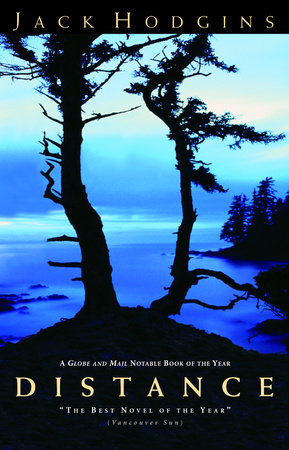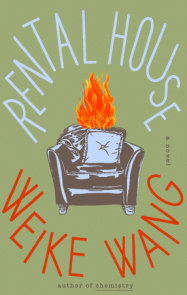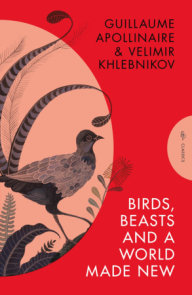READERS GUIDE
Introduction
A Globe and Mail Notable Book of the YearSonny Aalto, a restless middle-aged businessman, has spent his life running away from those closest to him. When his estranged, larger-than-life father, Timo, becomes too sick to care for himself, Sonny reluctantly returns to his childhood home of Vancouver Island, where he learns his father is not only dying but wants to die on his own terms – with Sonny’s help. But before facing the gravity of what’s ahead, the two embark on a journey to Australia, in search of a woman from their past, and over the course of the next few months their adventures will reveal difficult truths about fathers and sons, about families, about how we live and how we die – and about the good and bad things that distance can sometimes provide. Wise and irreverent, deeply moving, at times comic, and with vivid settings ranging from the frozen banks of Ottawa’s Rideau Canal to the lushness of Vancouver Island, from the bustle of downtown Sydney to the sun-baked desolation of the Queensland outback, Distance is Jack Hodgins’s most rewarding novel to date.
Questions and Topics for Discussion
1. The novel’s title is ambiguous and abstract. How does the concept of “distance,” both literally and figuratively, apply to the novel?
2. “You understood that people could vanish, though you might not like it much. And so could bad ideas, unpopular makes of cars,9 and movies you weren’t quick enough to catch. What was harder to get into your head was that places, too, could disappear, sometimes without moving an inch” [p 340]. What types of loss does Hodgins explore in Distance? And out of the loss in the novel, what is gained?
3. Distance is a novel which revolves around the idea of family. In what ways is Distance a novel about family? By the end of the novel, has Sonny become part of a family, or is he even less so than at the beginning of the novel?
4. Late in the novel, Sonny asks Timo (we can imagine incredulously), “My childhood was an example of you trying harder?” [p 343]. Sonny has reached that strange stage in life when he is both an adult child (son to Timo and Viira) and a parent. How has the relationship between Sonny and Timo changed now that Sonny is the caregiver rather than the one in need of care? How do Sonny’s relationships with his own children compare to the relationship he had with his father when he was growing up? How does the absence of a parent figure into these relationships? And how do these relationships compare with other parent-child relationships in the book?
5. The Australian flood in which Timo and Sonny get trapped is an echo of floods common in world mythology, including the familiar Biblical story. What other Biblical, mythological, or fantastic elements are present in Distance? How do these elements affect your understanding of the novel?
6. Early in the novel, Sonny is reading Gaston Bachelard’s The Poetics of Space, which is an exploration of “the poetics of the house” and of the philosophical underpinnings of “home.” In what ways is Distance about the search for home?
7. Hodgins writes of Sonny that “He wasn’t made for sitting long” [p 52]. This is true both literally and metaphorically. What is the underlying reason for Sonny’s continued travelling? Has he found what he was looking for, or escaped what he was running from?
8. Jack Hodgins has often been referred to as a regional writer, primarily focusing his fiction on the small towns of Vancouver Island. In Distance — which ranges in setting from Ottawa to Victoria, from Portuguese Creek to Australia — how does location help augment the themes in the novel?
9. “Nothing that remembered his touch was any longer part of the visible world,” Sonny thinks on his return to the farm where he grew up [p 86]. The overgrown farm (and dilapidated house) stand in sharp contrast to the formality of Butchart Gardens on the one hand (and the formal gardens Sonny once designed), and the dry desolation of the Australian bush on the other. What is the narrative or thematic significance of the landscapes in Distance? Is it significant that Sonny was once a landscape designer?
10. “‘Now listen,’ he tells the boy. ‘Up there to the north there’s a cliff on the mainland that rises out of the sea. My father told me this.’” [p 353] There are several young male characters in the novel often referred to as, simply, “the boy” (including the boy on the flight from Ottawa, Rohan and Lachlan in Sydney). Is the author using these characters to reflect elements of Sonny himself? In what specific ways are these characters significant to the novel as a whole?
11. Viira could be said to be the absent centre-point of the novel, around which the entire narrative revolves. Do you think Sonny is satisfied with how his journey to find his mother turned out? Are you, as a reader, satisfied with the results of this journey? Hodgins has said, “In an early draft of the novel, Viira did show up at the family station, but it became very clear that it was I who had brought her there and not herself. This version was obviously false and had to be changed.” How would Viira’s appearance at Caledon Station have changed the ultimate meaning of the novel’s ending?
12. Timo’s request that Sonny help him to die is surprising, if not unusual. What moral issues does this raise for Sonny? What issues does it raise for you as a reader? Do you agree with how Sonny handled Timo’s request?
13. Hodgins has written of these characters (in different ways) and of Portuguese Creek in two previous novels – The Macken Charm and Broken Ground. What have you learned about Timo’s childhood and about the adolescent friendship between Sonny and Rusty Macken? What is gained by reading about fictional characters over a number of books? Can you think of other writers who have created similar literary communities over the course of several books?
14. How do you think Sonny would answer the question, “What is the meaning of life?” How do you think Timo would answer the same question? Do you think their answers would change from the beginning of the novel to the end?
15. If you could ask Sonny one question, what would you ask him? Why?
16. If you could ask Jack Hodgins one question about Distance, what would you ask him?
17. Hodgins chose to deliberately leave the novel’s ending open-ended. What are some of the reasons why he may have chosen to do so, and how do they relate to the novel’s central concerns?
About this Author
Jack Hodgins was born and raised on Vancouver Island. He taught Creative Writing at a number of Canadian universities, and retired from the University of Victoria in 2002.He is the author of seven novels, including The Invention of the World; The Resurrection of Joseph Bourne, winner of the Governor General’s Award; The Macken Charm; Broken Ground, winner of the Ethel Wilson Prize for Fiction; and Distance; and three books of short stories, Spit Delaney’s Island, a finalist for the Governor General’s Award; The Barclay Family Theatre; and Damage Done by the Storm. He is also the author of A Passion for Narrative: A Guide for Writing Fiction.
Hodgins has been awarded the Canada-Australia Prize, among many others, has received three honorary degrees, and has been elected a Fellow of the Royal Society of Canada.




















